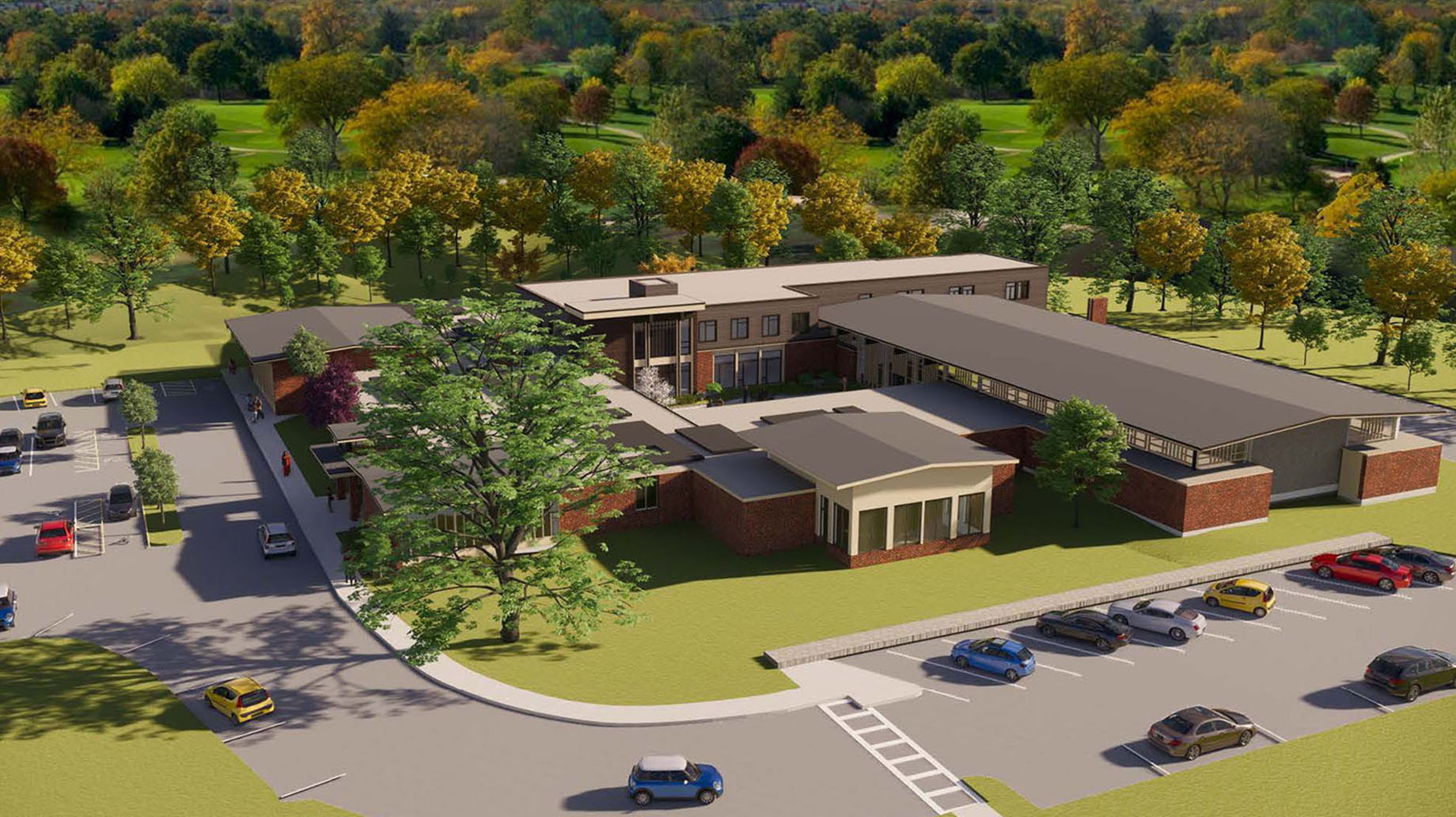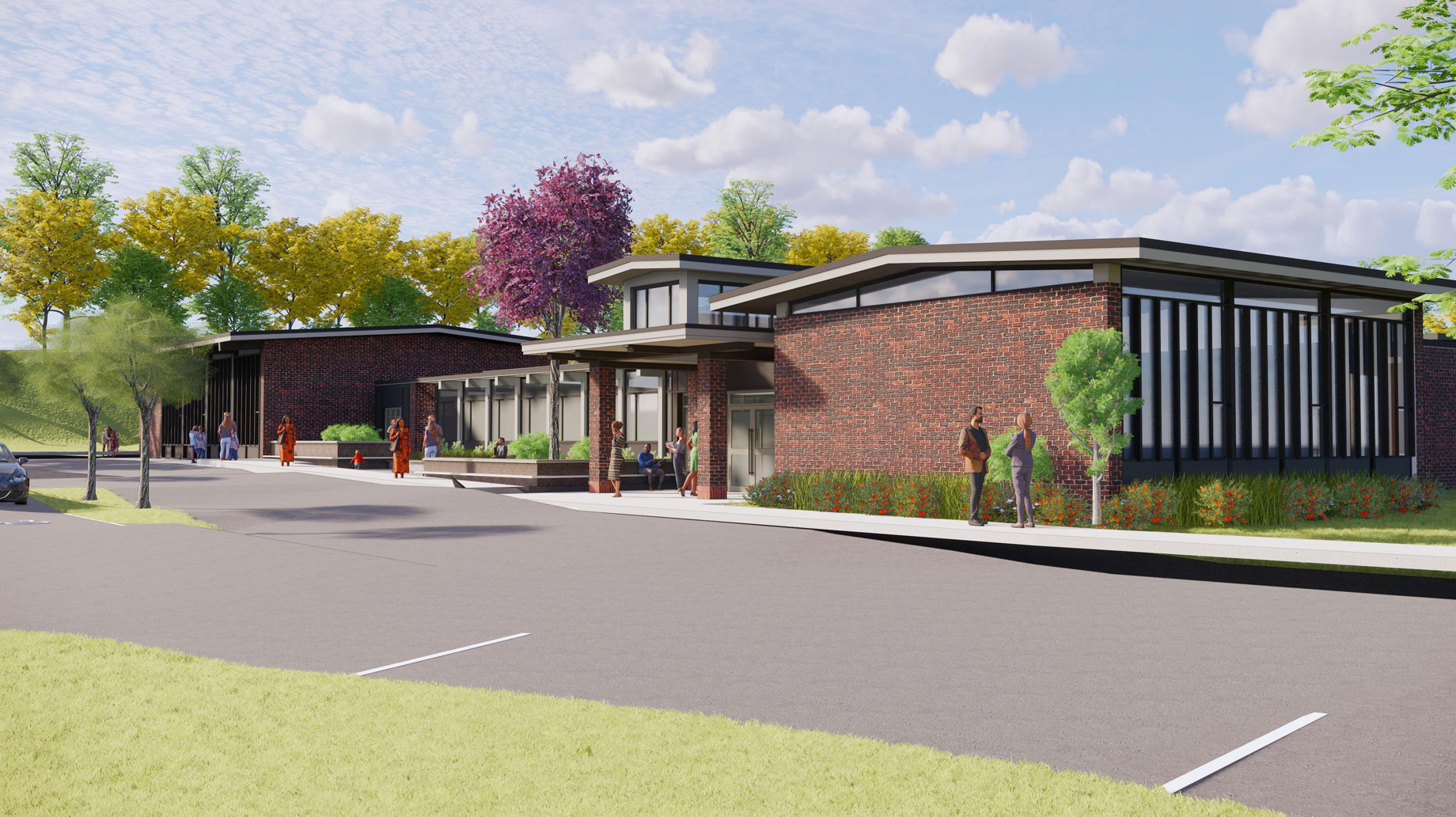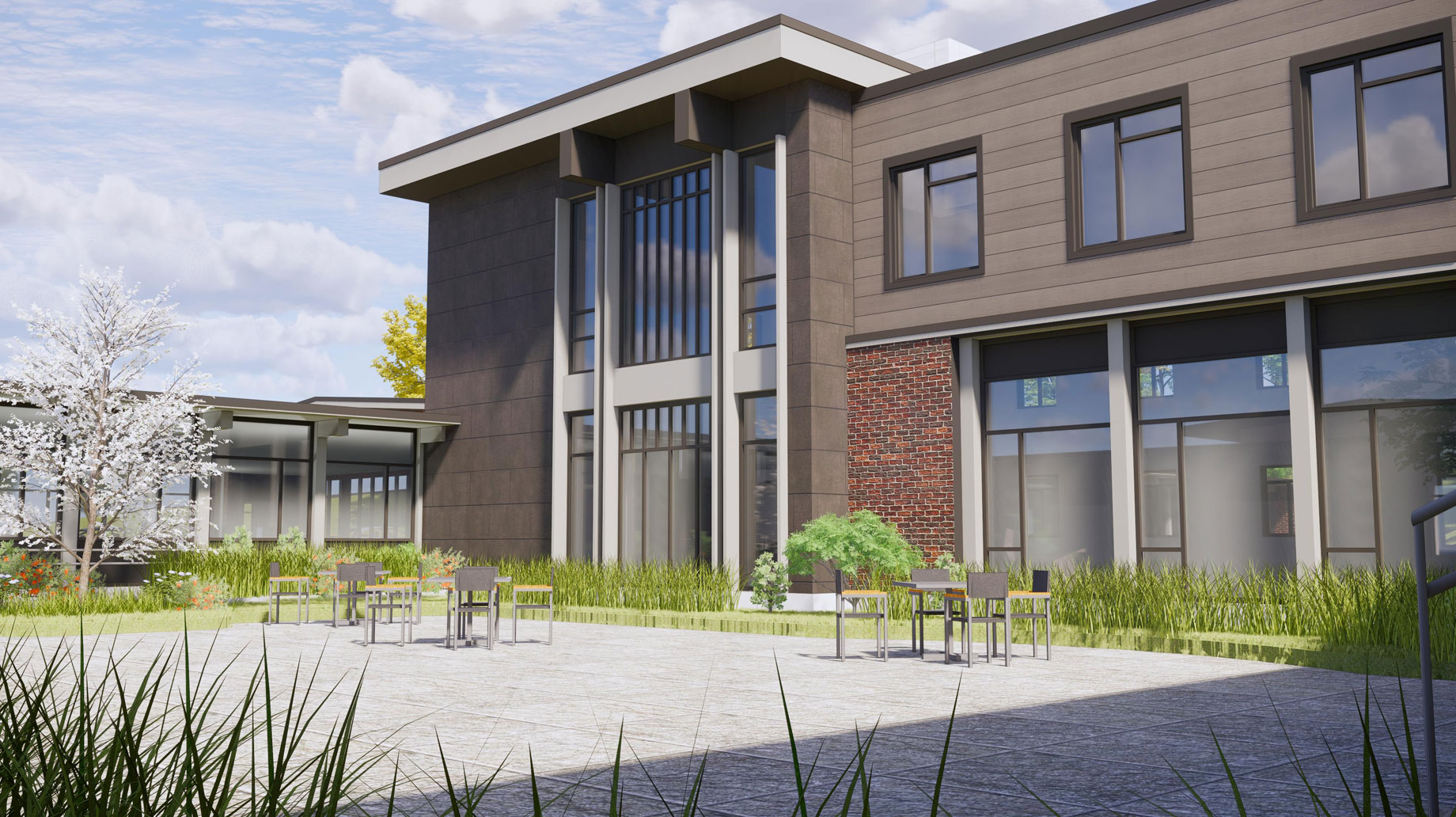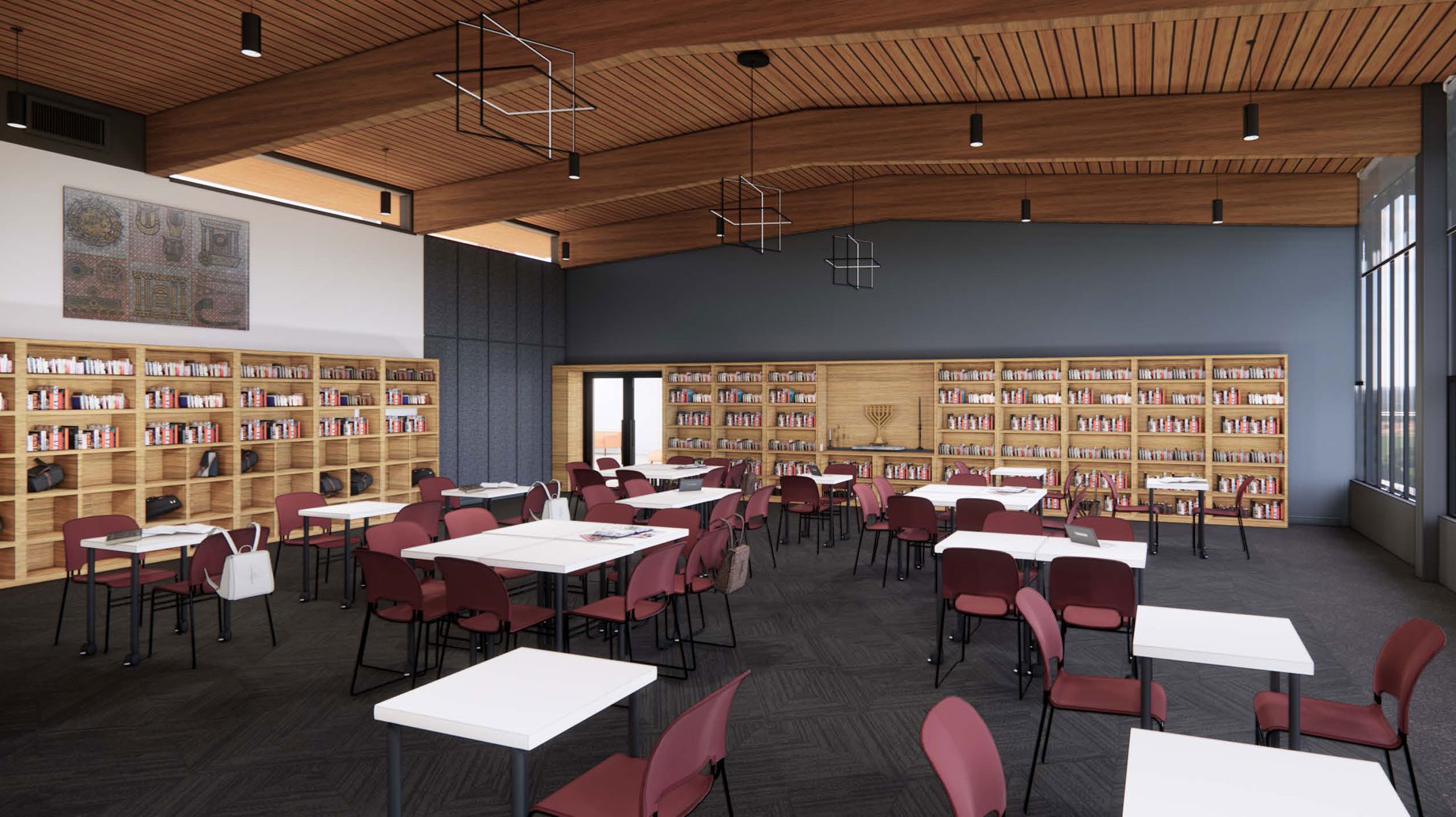History
Our History
Midway through his announcement of the opening of Hebrew College, on the front page of the August 18, 1921 issue of the Jewish Advocate, Louis Hurwich issued a call to revolution:
“In the next five years, no less than 75 percent of the present Jewish teachers in Boston will go over to other professions,” warned Hurwich, the superintendent of the Bureau of Jewish Education of Boston. “The inability of the Jewish school to hold its own is sufficient challenge to the American Jewish community to wake up and to create bases for permanent improvement.”
Hebraist Roots
Hurwich’s aspirations were not just institutional. He was sounding the themes of a new movement that had arrived in the early 20th century with the influx of Eastern European immigrants to cities across the country. Known as the Hebraist movement, this ambitious attempt to create a vital Hebrew culture in America flourished for a brief period, in the years from World War I to World War II.
Its proponents urged social change, motivated by the Zionist conviction that building a Hebrew movement in the Diaspora communities was essential to securing the dream of Jewish life in Eretz Yisrael. These were the intellectual heirs of Ahad Ha-am (1856-1927), the Russian thinker and founder of cultural Zionism, who taught that the everyday use of Hebrew would serve as a barrier against the pressures of assimilation and as a spiritual and cultural bridge between the dispersed Jewish communities of the Diaspora and Eretz Yisrael.
A New System of Jewish Institutions
The revival of the Hebrew language was the movement’s first principle, and it mobilized, through committed Jewish educators such as Hurwich, a new system of Jewish institutions to teach and promote Hebrew literacy at every level. The network of Hebrew schools, colleges and summer camps that exist today remains its great, tangible legacy.
Established at the height of the movement, in November 1921, Hebrew College was a model of the Hebraist approach to education. Indeed, Hurwich made the European “ivrit b’ivrit” (Hebrew in Hebrew) teaching method the first principle of the college: Hebrew would be the exclusive language for instruction, and the Hebrew courses, its most intensive effort.
His appointment of Nissan Touroff, former director of the Hebrew educational system in Palestine, as the school’s first dean, set the standard for the faculty. Primarily European scholars and ardent Zionists, they taught the Bible, the Talmud, and Hebrew literature and emphasized a nationalist, secular interpretation of Jewish texts and history.
Founded as the Hebrew Teachers College in a converted Crawford Street house in Roxbury, the college, from its inception, included education courses in the curriculum. But this was a training not just of teachers. Graduates, Hurwich envisioned, would become lifelong educators of “pioneer character” who would create a “dynamic Jewish consciousness that the dream of the world’s Jewry of Jewish rejuvenation in Palestine may be realized.”
A daunting time commitment, as well as economic considerations, were significant factors in limiting the college’s initial enrollments. Yet the numbers grew annually. By the end of the first year, there were 23 students; at the end of the second, 50. In 1923, a two-year preparatory course was added, which later became the “Hebrew High School,” and local primary schools began vying to prepare their students for admission. An annex was erected to accommodate more classes. By the mid-1930′ s, when classes were filled with talented students such as the future celebrated author Theodore H. White, the college had expanded its degrees to include bachelors, masters, and doctorates of Hebrew literature, laws and Jewish education.
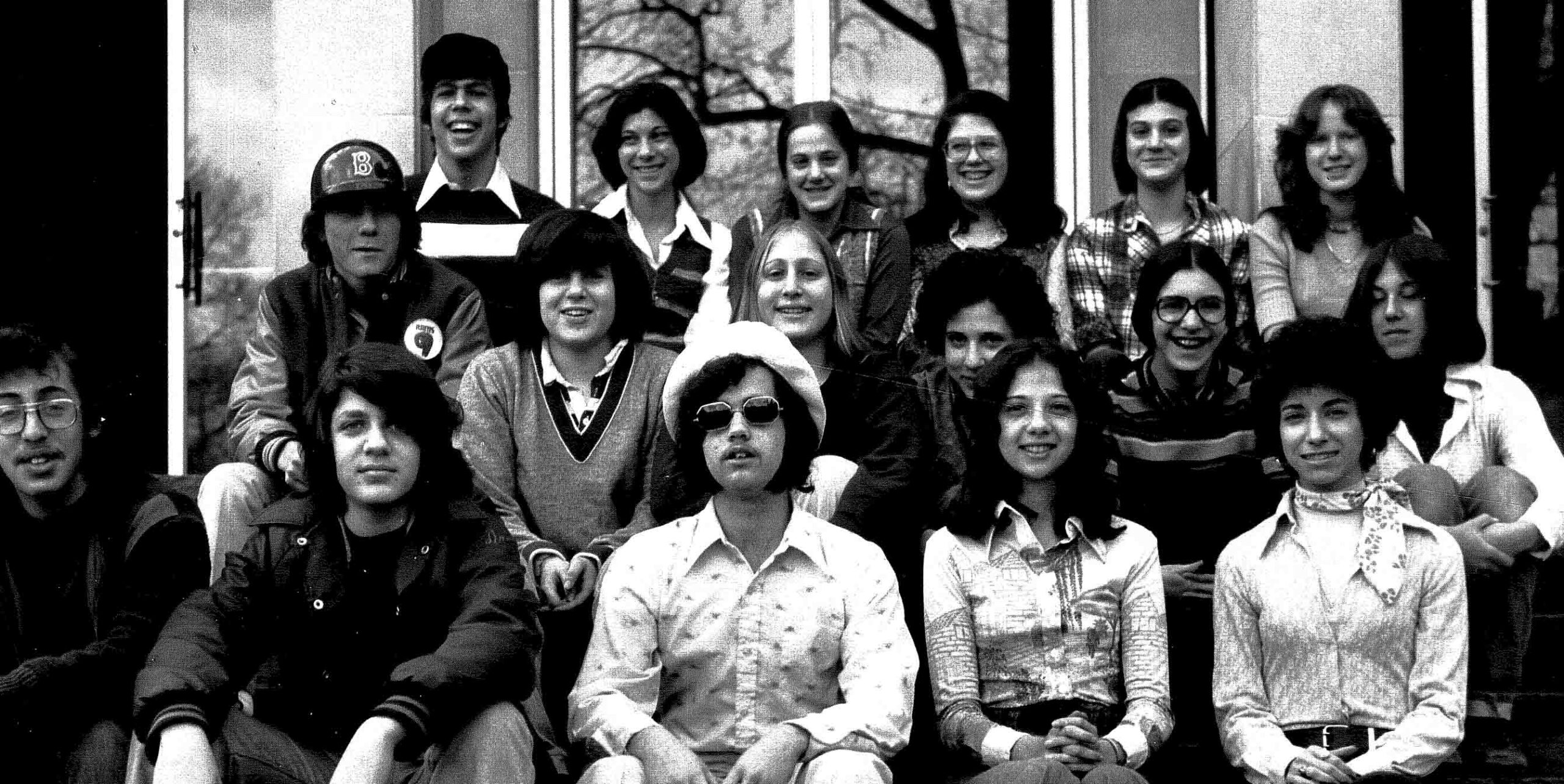
The Move to Brookline
In 1952, friends of Hebrew Teachers College purchased a new home for the growing institution — a classical beaux arts mansion at 43 Hawes St. in Brookline, former home of George Wightman, a turn-of-the-century industrialist. The elegant structure was a striking change from the college’s humble beginnings on Roxbury’s Crawford Street. But the college’s mission remained the same – a commitment to promoting the highest quality Jewish education as vital to the survival of the Jewish people.
No longer the child of the Bureau of Jewish Education, the college became a constituent agency of Associated Jewish Philanthropies, forerunner of Combined Jewish Philanthropies. The college was first accredited by the New England Association of Colleges and Secondary Schools in 1955; in 1962, it was also accredited by Israel’s Ministry of Education and Culture to train certified elementary-school teachers for Israel. Today, Hebrew College is a constituent agency of Combined Jewish Philanthropies of Greater Boston.
Newton Centre Campus
In 2002, Hebrew College moved into its first true campus in Newton Centre. Under the leadership of the college’s seventh president, David M. Gordis, the college had expanded its mission to bridge the worlds of academy and community. Innovative programming in adult learning, including Me’ah and the Me’ah Graduate Institute, expanded degree and certificate programs for Jewish professionals, path-breaking approaches to teen education in the Prozdor Hebrew High School – all had brought the college national recognition as a leader in pluralistic Jewish education, more students, and the need to expand physically.
In 2003, the college opened its Rabbinical School, the first full-time pluralistic rabbinical program at an accredited college; the following year, the college launched its pluralistic Cantor-Educator Program, part of what is now the School of Jewish Music. Hebrew College rabbis and cantor-educators have joined the ranks of the College’s alumni — distinguished Jewish educators, scholars, communal and spiritual leaders throughout the world.
Securing the College’s Future
Following Gordis’ retirement in 2008, the board of trustees tapped Rabbi Daniel L. Lehmann, founding headmaster of Gann Academy, an internationally acclaimed pluralistic Jewish high school in Waltham, MA, as Hebrew College’s eighth president. Lehmann has renewed the college’s commitment to pluralistic Jewish education in the realm of graduate studies, community learning and youth education.
Under his leadership, Hebrew College established the Center for Global Judaism, now the Betty Ann Greenbaum Miller Center for Interreligious Learning and Leadership, and the School of Jewish Music (formerly the Jewish Music Institute); became a member of the Boston Theological Institute (BTI), a consortium of 10 theological schools and seminaries in the Boston area; began partnerships with Northeastern University to provide a Doctor of Education in Jewish Education Leadership, and Boston University’s School of Management, to provide a certificate program in nonprofit management for rabbis and rabbinical students; increased adult-learning options to include Parenting Through a Jewish Lens, Parenting Your Teen Through a Jewish Lens, Eser, and Open Circle Jewish Learning; and expanded the successful Prozdor supplemental Jewish high school program to middle-school-age students, with the establishment of Makor.
In summer 2012, Lehmann oversaw a plan to refinance the school’s real-estate debt, reducing its original bond obligation by 75 percent and securing ownership of the campus. The occasion was marked with a building rededication celebration in December 2012.
New Leadership
In July 2018, Rabbi Sharon Cohen Anisfeld, former Dean of the Rabbinical School of Hebrew College, became Hebrew College’s ninth president and the first woman to hold this position in the College’s history. Rabbi Anisfeld was officially installed on October 15, 2018 with approximately 600 people in attendance.
Hebrew College Centennial (1921-2021)
Remember. Renew. Reimagine.
Hebrew College celebrated our 100th year in academic year 2021-2022 around the theme “Remember. Renew. Reimagine.” Throughout the year we held special events, lectures, art exhibits, published the centennial volume Hiddushim, produced a special centennial season of our “Speaking Torah” podcast, and shared stories, trivia, photos and more.
A few highlights included:
- “Seeing Torah” Fall Art Exhibit Opening (September 2021)
- Groundbreaking for our new shared campus (fall 2021)
- Centennial Art Exhibit (spring 2022)
- Commencement & Ordination (May 2022)
- Spring Centennial Celebration (June 2022)
- Publication of Hiddushim (June 2022)
A New Home and New Partnership on a Shared-Campus in Newton
In March 2021, Hebrew College announced that the College will partner with Temple Reyim to create a new shared campus for Jewish life on the grounds of Temple Reyim, 1860 Washington Street in Newton, Massachusetts. The College will relocate to our new home in January 2023. Learn more.



